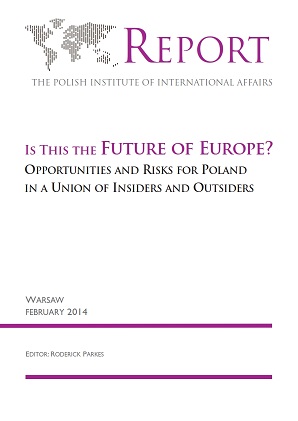Financing: Who Pays for the Catch-up States?
Financing: Who Pays for the Catch-up States?
Author(s): Patryk Toporowski
Subject(s): Supranational / Global Economy, Governance, Economic policy, International relations/trade, Economic development, EU-Approach / EU-Accession / EU-Development, Fiscal Politics / Budgeting
Published by: PISM Polski Instytut Spraw Międzynarodowych
Keywords: European Union; community financing; system of financing; EU budget; financial crisis; economic development;
Summary/Abstract: Without Community financing it is difficult to imagine how the EU would function. Money legitimises the decisions made at the EU level, meaning that a focus on the current system of financing and its likely development is key to the question of EU-wide cohesion. The picture, however, is becoming increasingly blurred with the weakening of democratic control of the process: the EU budget—controlled by Parliament, and fiercely negotiated by the Member States—has been relegated to the status of just one of the sources that finance EU activities such as substitutes for the Eurozone budget, other funds, and money under the control of the ECB, EBI and others. It is difficult to say whether such a complex system will help the EU meet challenges such as increasing competitiveness, emerging from the financial crisis and hastening long-term economic growth. A more suitable solution lies in a system transparent to the decision-makers in all Member States and to their citizens, which may react to unpredicted events.
- Page Range: 35-40
- Page Count: 6
- Publication Year: 2014
- Language: English
- Content File-PDF

